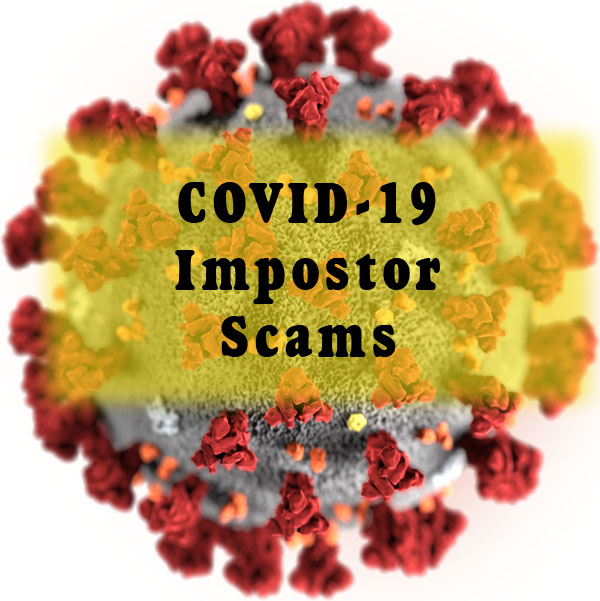The Cuyahoga County Department of Consumer Affairs (DCA) is warning residents about scams surrounding COVID-19. “People should exercise caution in handling any email with a Coronavirus/COVID-19-related subject line, attachment, or hyperlink, and be wary of social media pleas, texts, or calls related to COVID-19,” said DCA officials. “Local and federal IT security specialists have already reported malware-laden COVID-19 spam.
In addition, the Federal Trade Commission and Food and Drug Administration have sent warning letters to companies that are peddling special teas, colloidal silver, and essential oils as preventive products without any scientific evidence they work.
To avoid COVID-19 related scams, the DCA recommends the following:
– “Get updates on COVID-19 from trusted news and official sources, including https://www.cdc.gov/ and https://odh.ohio.gov/wps/portal/gov/odh/home. The Cuyahoga County Board of Health has information on COVID-19 prevention measures and cleaning products at ccbh.net/coronavirus/.
– Avoid clicking on emailed links about COVID-19 from unknown sources to avoid downloading malware on your computer or phone.
– Ignore social media ads or shares with hyped headlines or that tout COVID-19 “cures” or prevention products.
– Investigate products before you buy. The FTC is keeping track of COVID-19 scams at ftc.gov/coronavirus.”
In addition, the Federal Trade Commission offers the following tips to help you keep the scammers at bay:
– “Hang up on robocalls. Don’t press any numbers. Scammers are using illegal robocalls to pitch everything from scam Coronavirus treatments to work-at-home schemes. The recording might say that pressing a number will let you speak to a live operator or remove you from their call list, but it might lead to more robocalls, instead.
-Ignore online offers for vaccinations and home test kits. Scammers are trying to get you to buy products that aren’t proven to treat or prevent the Coronavirus disease 2019 (COVID-19) — online or in stores. At this time, there also are no FDA-authorized home test kits for the Coronavirus. Visit the FDA to learn more.
– Fact-check information. Scammers, and sometimes well-meaning people, share information that hasn’t been verified. Before you pass on any messages, contact trusted sources. Visit What the U.S. Government is Doing for links to federal, state and local government agencies.
– Know who you’re buying from. Online sellers may claim to have in-demand products, like cleaning, household, and health and medical supplies when, in fact, they don’t.
– Don’t respond to texts and emails about checks from the government. The details are still being worked out. Anyone who tells you they can get you the money now is a scammer.
– Don’t click on links from sources you don’t know. They could download viruses onto your computer or device.
– Watch for emails claiming to be from the Centers for Disease Control and Prevention (CDC) or experts saying they have information about the virus. For the most up-to-date information about the Coronavirus, visit the Centers for Disease Control and Prevention (CDC) and the World Health Organization (WHO).
– Do your homework when it comes to donations, whether through charities or crowdfunding sites. Don’t let anyone rush you into making a donation. If someone wants donations in cash, by gift card, or by wiring money, don’t do it.”
In addition to the COVID-19 scams, the Cuyahoga County Department of Consumer Affairs has reported that a new round of impostor scams are also taking place, of people impersonating court officials or County Sheriff’s deputies. “Recently, the Cuyahoga County Sheriff’s Department received multiple complaints about impostor calls in which scammers identified themselves as deputies. When calling the phone number given, the person answered by saying ‘Cuyahoga County Sheriff’. In these scams, callers posing as police or court officials tell potential victims they missed a court date and threaten them with immediate arrest or account seizure unless they pay a fine,” according to Sheriff’s Department officials. “Some scammers may initially tell people to go to the Justice Center to pay, but when victims call back as instructed, they ultimately are told to pay using retail gift cards or money wires—forms of payment that government agencies do not accept.”
“Calls threatening you with arrest, lawsuits or account seizure are flat-out scams,” said Sheryl Harris, Director of the Cuyahoga County Department of Consumer Affairs. “These scammers steal the names of real agencies solely to scare you into paying them.” The Cuyahoga County Clerk of Courts does not summon jurors via email. The courts or the Sheriff’s Department will never phone you to demand you pay court fees or penalties or to threaten you with arrest unless you make immediate payment.
North Royalton Police Department Lieutenant Keith Tarase said that there have not been calls for those particular scams to date. He has noted that the North Royalton Police Department does receive scam reports from the residents often. Residents who receive scam calls are encouraged to call the North Royalton Police Department at 440-582-6216, the Scam Squad line at 216-443-SCAM (7226), or to report them by visiting consumeraffairs.cuyahogacounty.us.
By GLORIA PLEVA KACIK
Contributing Writer
County warns of COVID-19 impostor scams
Royalton Recorder County warns of COVID-19 impostor scamsApr 14, 2020






